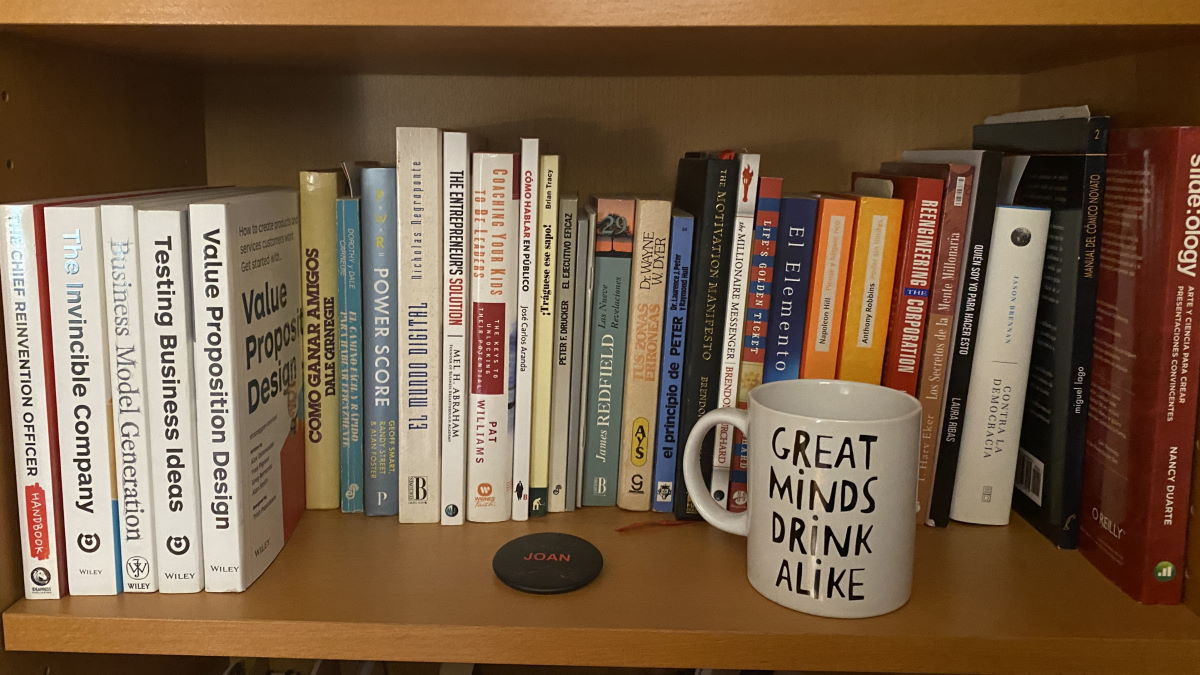No. I’m not going to be the one to say that training is not important.
And I can’t say that it’s because I’m in IT, in technology, in innovation.
Even if you are a snail farmer, you are going to have to recycle yourself, to discover new techniques, new markets, new clients, new ways of working with banks, of paying taxes.
It is essential to be continuously training throughout your life.
The premise of studying until you are twenty-something and then you will live for 40 years on what you have learned until you retire is not valid at all.
That is even still promoted in the study plans formalized in the Official State Bulletin.
That was from other times. Times where the grandson could continue doing the same work as the grandfather. With the same tools, the same techniques, in the same village.
That is over. You can add fortunately or unfortunately, as you prefer. But it’s over.
I think it even reflects a misplaced mentality to think of something called an indefinite contract when the company that hires you is highly unlikely to be able to last more than 20 years.
Indefinite?
Every year that goes by it is more and more defined when the contract is going to end. When the company has to retire. It’s inevitable. And then what?
Because everything moves so fast.
And more and more.
I’m sure my daughters will laugh at how slow everything was going in our generation.
Yes. Training is important.
It can be technical issues, in your specialty, which I’m sure is evolving.
It can be more generic topics such as learning how to speak in public, how to be productive, how to manage your money, how to do networking, trading or storytelling, how to avoid phishing, crashing or stressing.
It can be through classroom courses, online courses, reading books, listening to podcasts. A little bit of everything probably.
But it must have its limits.
It can’t be that training becomes the centerpiece of your workday.
Because the truth is that you are not going to finish it.
No matter how much time you spend on it, there will always be other things that could be useful to you in the short, medium or long term.
And above all because training is important… if it is followed by putting it into action.
As the tire commercial said: power without control is useless.
Training without putting it into practice is just a waste of time.
I am amazed by certain people I like to follow and learn from. They write great articles, publish interesting books, publish daily instructional podcasts. Yes, yes. Daily.
I could go all day consuming that information they generate.
However, I wonder: how much time must they spend generating it?
Because that’s not their core business. That’s a way to attract customers to their real business.
And counting all this, how much time should they spend on self-training?
They must necessarily have very limited time for training. Otherwise it would be impossible for them to publish what they publish and manage their own business if they also spend too much time listening to and reading others.
Finding the balance is vital.
Training must be part of our professional day. An important part.
And every training must have a meaning. From everything we study we must get something where we are going to apply it. Soon. Before we forget.
And that professional development must leave room for the rest of the things that are important in our life and in our business.
